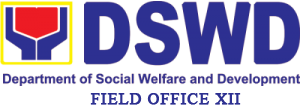KORONADAL CITY, South Cotabato- The Department of Social Welfare and Development in Region 12 has completed 179 Kalahi-CIDSS projects in 2018 with the total amount of P275.75 million in various barangays and municipalities, an agency top official said Thursday.
Gemma N. Rivera, DSWD 12 assistant regional director and program manager said that the various community projects have benefited some 103K households.
“These completed projects are considered to be the most pressing needs and have been instrumental in order for the beneficiary communities to access basic social services of the government and other organizations,” Rivera said.
Rivera noted that a good number of these completed projects are located in far-flung and geographically isolated and disadvantaged areas in the region.
“These are fruits of collaborative efforts of various agencies, local government units and villagers in various communities in order to not just simply put up physical projects but also invest on human capital through capacity building activities to enable them to be capable of managing other projects in their communities in the future,” Rivera said.
Rivera added that the mobilization and involvement of ordinary citizens in various community activities is considered of equal importance to the physical projects itself.
“We need to empower ordinary citizens to ensure that they understand their responsibilities as beneficiaries and to inculcate the values of transparency, participation, accountability and sense of ownership to sustain these projects,” Rivera said.
Among the completed projects include schools, pre and post-harvest facilities, health stations, rescue vehicles, solar lights, school buildings, potable water system, road rehabilitation and concreting, core shelter and many others.
Kalahi-CIDSS, which stands for Kapit-Bisig Laban sa Kahirapan-A Comprehensive and Integrated Delivery of Social Service, is one of the poverty-alleviation programs of the government that is being implemented by the DSWD.
Nationwide, the program is implemented in 14 regions and 10, 595 barangay. It uses the community-driven development (CDD) approach, which enables communities in targeted poor and disaster-affected municipalities to identify their own needs, and collectively implement and manage solutions to these needs. (Hilbert T. Estacion, regional social marketing officer, DSWD 12)
